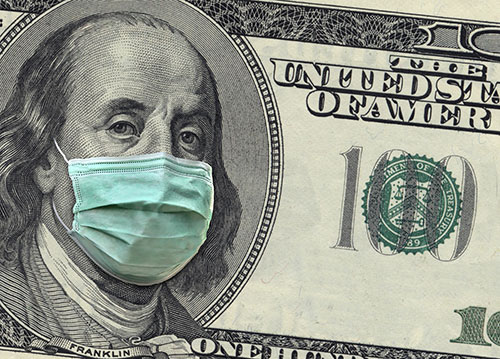Signed into law on March 27, 2020, the CARES Act provided various forms of stimulus targeted at reducing the impact of the economic downturn caused by the COVID-19 pandemic.
As of last week, most of the stimulus programs created by the CARES Act had come to an end. Fortunately, there has already been significant discussion in Washington around extending the various stimulus programs. However, reaching common ground was unsuccessful in Congress, and President Trump issued an Executive Order to extend some components of the stimulus programs. Although the Executive Order provides some relief, the broader deal will play a vital role in the path our nation takes toward economic recovery.
Although a final deal seems to be a few weeks away, we can infer what the key components will be based upon the two proposals made to date: the Democratic-backed HEROES Act and the Republican-backed HEALS Act. An overview of both proposals and how they compare to the CARES act is outlined below:
As of last week, most of the stimulus programs created by the CARES Act had come to an end. Fortunately, there has already been significant discussion in Washington around extending the various stimulus programs. However, reaching common ground was unsuccessful in Congress, and President Trump issued an Executive Order to extend some components of the stimulus programs. Although the Executive Order provides some relief, the broader deal will play a vital role in the path our nation takes toward economic recovery.
Although a final deal seems to be a few weeks away, we can infer what the key components will be based upon the two proposals made to date: the Democratic-backed HEROES Act and the Republican-backed HEALS Act. An overview of both proposals and how they compare to the CARES act is outlined below:
INDIVIDUAL-FOCUSED STIMULUS
| Topic | CARES Act (Enacted March 2020) |
HEROES Act (Democratic Proposal) |
HEALS Act (Republican Proposal) |
|---|---|---|---|
| Total Funds | $2.2 Trillion | $3 Trillion | $1 Trillion |
| Stimulus Check Amount for Individuals | $1,200 to single filers earning less than $75k per year.
$2,400 to joint filers earning less than $125k per year. Amount begins to phase out above the income limits. |
Additional stimulus check under the same guidelines as the CARES Act, but more people will qualify. | Additional stimulus check under the same guidelines as the CARES Act. |
| Stimulus Check Amount for Dependents | $500 for dependents age 16 and under. | $1,200 for a maximum of three dependents | $500 for dependents with no age limit. |
| Unemployment Benefits | $600 per week in addition to state benefits.
Expired July 31, 2020. |
$600 per week in addition to state benefits.
Expires January 2021 for most workers. Extension through March 2021 for independent contractors (including gig workers), self-employed, and part-time workers. |
Initially $200 per week, then up to $500 per week to match 70% of lost wages when added to state benefits.
$200 per week available through September 2020. Remaining benefits available through December 2020. |
| “Return to Work” Bonus | Not Applicable. | Not Applicable. | Potential for a “return-to-work” bonus of up to $450 per week for unemployed workers who are rehired or find a new job. |
| Eviction Protections | For properties backed by federal loan programs or receiving federal funds, late fees prohibited until 7/25/2020 and evictions until 8/24/2020. | Covers nearly all rental properties with eviction moratorium extended 12 months. Allocates $200 billion for housing programs and $100 billion for rental assistance. | Not applicable. |
| Reopening Schools | Not applicable. | $58 billion for K-12.
$42 billion for higher education. |
$70 billion for K-12 that open for in-person classes.
$29 billion for higher education. $1 billion to the Bureau of Indian Education. $5 billion at state discretion. |
| Coronavirus Testing | Not applicable. | Not applicable. | $16 billion. |
BUSINESS-FOCUSED STIMULUS
| Topic | CARES Act (Enacted March 2020) |
HEROES Act (Democratic Proposal) |
HEALS Act (Republican Proposal) |
|---|---|---|---|
| Paycheck Protection Program | $659 billion total in loans for small businesses
75% must be spent on payroll (later reduced to 60%) to be eligible for forgiveness. $130 billion remains but expired on 8/8/2020. |
Eliminates 75% payroll spend requirement.
Extends the application period for the remaining $130 billion to 12/31/2020. |
Adds an additional $190 billion into the PPP fund.
Businesses under 300 employees and able to prove at least a 50% reduction in gross revenues during the pandemic can qualify for a second, forgivable loan. Eliminates 75% payroll spend requirement. Simplified forgiveness process for loans under $150k. |
| Employee Tax Credit | Tax credit on 50% of up to $10,000 in wages ($5,000 maximum credit). | Tax credit on 80% of up to $15,000 in wages ($12,000 maximum credit). | Tax credit on 65% of up to $30,000 in wages ($19,500 maximum credit). |
| Liability Protection from Coronavirus Illness | Not Applicable. | Not Applicable. | 5-year liability shield to protect various organizations from being sued over coronavirus-related issues to ease reopening efforts. |
When analyzing both proposals, it is evident that some components will likely be included in a final version of a bill.
- Second Stimulus Checks: The HEALS Act mimics the original CARES Act while the HEROES Act calls for the same $1,200 payment but with more people qualifying. The parties are not far off on this point so another round of checks is very likely.
- Unemployment Benefits: While both sides of the table are far off on the amount and duration, they do agree that the issue needs addressing. This fact, paired with President Trump’s Executive Order allowing for an additional $400 per month in benefits, makes a compromise very likely in the final bill.
- Paycheck Protection Program: With both sides wanting to extend the program, some level of extension is highly likely. For many of our business owner clients who have been affected by the pandemic, the HEALS Act proposal is very intriguing. In its current state, the proposal would allow for companies with under 300 employees who can demonstrate a reduction in revenues of 50% or more to get a “second draw” forgivable loan. The only limitation is that the total of both loans can’t exceed $10 million.
The parties are in disagreement in some areas which will likely be omitted in the final bill or only appear in a reduced form.
- Eviction Moratorium: This item was absent from the GOP proposal. President Trump’s Executive Order did state that the Secretary of HUD “shall take action, as appropriate and consistent with applicable law, to promote the ability of renters and homeowners to avoid eviction or foreclosure.” However, many political analysts are calling the “order” more of a “suggestion” when it comes to this topic.
- “Return-to-Work” Bonus: Although GOP Sen. Rob Portman proposed it, it was not a part of the final HEALS Act proposal. Considering the topic was also missing from the HEROES Act proposal, it is almost certain that this item will not make a final bill.
With a major election right around the corner, the timing of reaching an agreement is difficult to estimate. One may think that quickly reaching a compromise would result in more votes. Another may feel that digging in your heels on an important topic may garner more votes. Either way, we would expect that a compromise is made and a final bill enacted prior to the election.
We will continue to track this topic and provide you with updates as they become available.

